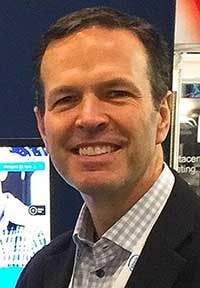Data Center Geography: What Are the Hot Markets in 2019?
Today we continue our Data Center Executive Roundtable, a quarterly feature showcasing the insights of thought leaders on the state of the data center industry, and where it is headed. In today’s discussion, our panel of experienced data center executives – James Leach of RagingWire Data Centers, Randy Rowland of Cyxtera Technologies, Rick Crutchley of Iron Mountain Data Centers and Jeff Klaus of Intel Data Center Software Solutions – examine the North American data center landscape, and which geographic markets will be hot in 2019.
The conversation is moderated by Rich Miller, the founder and editor of Data Center Frontier.
Data Center Frontier: Data center geography continues to be a hot topic. What markets will be strongest in 2019, and why? What are the up-and-coming markets that may make headlines in 2019?
JAMES LEACH, RagingWire Data Centers
James Leach: Location has always been the number one criteria for data center buyers, but the nature of this requirement is changing. In the past, location meant being within 100 miles of your corporate office or your IT organization. Today, location is about minimizing network latency and optimizing application availability. With this approach, top data center markets are more important than ever. These markets will become hubs to the hundreds, thousands, and potentially millions of edge computing locations.
In the U.S., we see the continued dominance of the data center markets in Ashburn and Northern Virginia as well as Silicon Valley. These are “demand markets” where data center capacity is typically sold before construction is complete. We also like Dallas and Chicago, both top markets that can address network latency because of their location in the middle of the United States. Dallas and Chicago are “supply markets” where capacity is currently available for rapid deployment. Lastly, we see “alternative markets” that offer specific value propositions to a set of buyers. Our data center campus in Sacramento is an example, as it offers a seismically-safe option for companies needing a California data center. We include the Pacific Northwest in this category for buyers that have a requirement for low-cost, renewable energy to power their data centers.
Internationally, the major markets of Asia and Europe should continue to see growth, including Singapore, Hong Kong, and Tokyo in Asia and Frankfurt, London, and Amsterdam in Europe. We’re also excited about the opportunities in India, particularly in Bangalore, known as the Silicon Valley of India, and Mumbai, the financial capital of the country.
RICK CRUTCHLEY of Iron Mountain.
Rick Crutchley: In the US markets, the Phoenix Metro Area has quite a bit of supply ready to hit the market. As a result, I anticipate seeing more than a few headlines on Arizona transactions. As always, the Northern Virginia market is poised for sustained growth with numerous construction projects planned or underway. Other usual suspects like Chicago, Dallas and Northern California as well as the Pacific Northwest will continue to be hot markets.
International I would expect strong investment in the FLAP markets (Frankfurt, London, Amsterdam, Paris) as well as Marseille and the Nordics.
RANDY ROWLAND, President of Data Center Services at Cyxtera
Randy Rowland: Our core metro regional markets, including Dallas, New York, London, Phoenix, Chicago, the Bay Area and Northern Virginia, continue to see strong demand. Beyond just having a strong presence in one or two key markets, we’re seeing increased demand from customers for a single provider that can address their needs with a diverse global footprint across multiple geographies.
In addition to presence in core markets, we plan to expand into new markets based on demand from our customers. Our continued commitment to grow and maintain a diverse connectivity ecosystem can also help global enterprises transcend dependencies on geographic proximity.
JEFF KLAUS, General Manager of Intel Data Center Management Solutions
Jeff Klaus: It’s all about latency and environmental advantages. There are other things such as governmental incentives / requirements, or HR dependencies that dictate specific outcomes, but for most things I see the same 2018 desirable areas being the desirable areas in 2019.
NEXT: The state of IT security and the data center industry.
Keep pace with the fact-moving world of data centers and cloud computing by following us on Twitter and Facebook, connecting with me on LinkedIn, and signing up for our weekly newspaper using the form below:
About the Author






